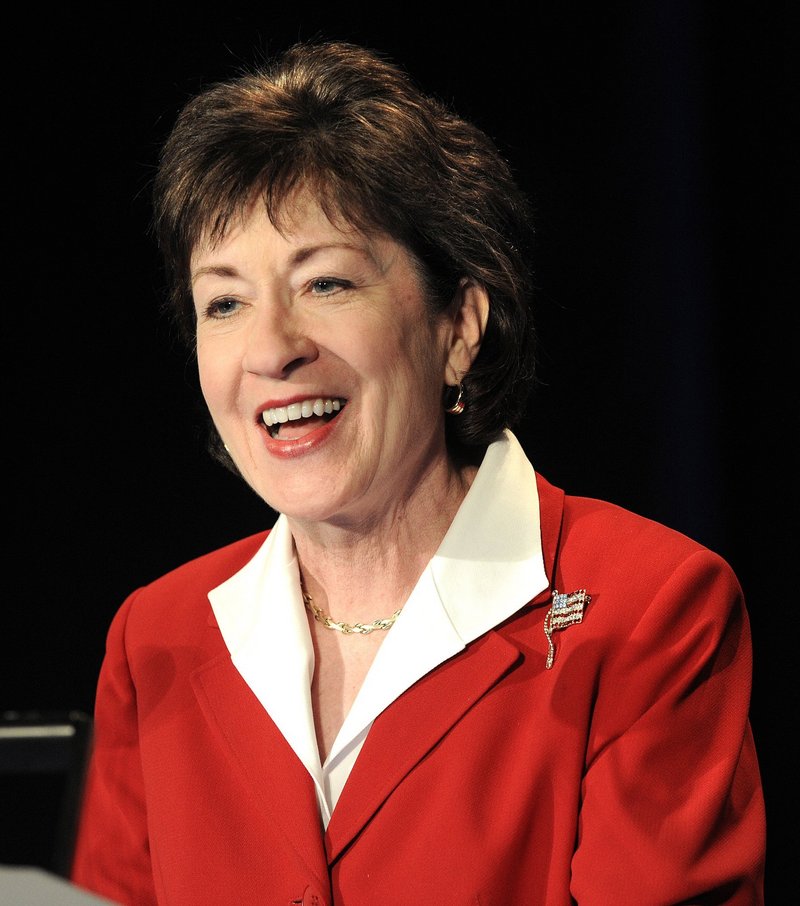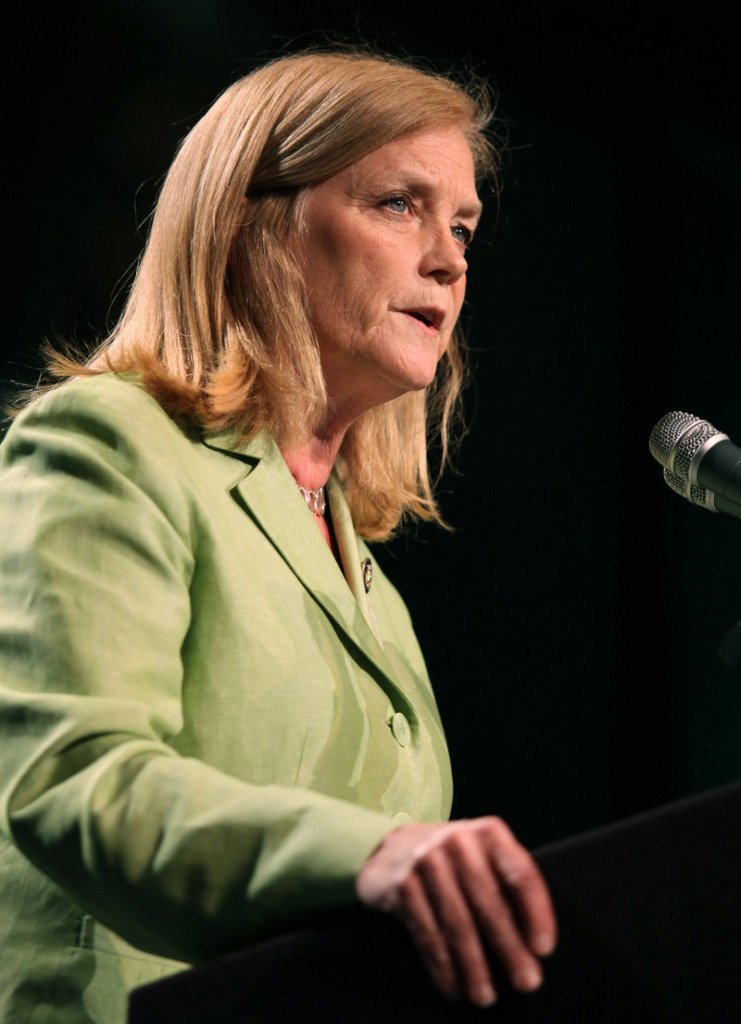WASHINGTON – More than two decades after she was raped on a military base overseas while still a teenager, a Maine woman and Navy veteran can’t hold down a job or, sometimes, even cope with a crowded store.
While the military and the Department of Veterans Affairs have taken steps to better aid soldiers and veterans who suffer from combat-related post-traumatic stress disorders, victims of sexual trauma suffered in the military aren’t getting adequate help receiving the disability benefits they deserve, says this Maine woman, who agreed to speak on condition of anonymity because she doesn’t want her young child to know what happened.
Among those who agree with her are U.S. Rep. Chellie Pingree, D-Maine, and Sen. Susan Collins, R-Maine. The lawmakers have introduced separate bills designed to attack different aspects of the problem.
Collins’ legislation, introduced last week with Democrat Sen. John Kerry of Massachusetts, would give the Pentagon new tools to better prosecute sex offenders and protect active-duty victims.
Pingree’s bill, which she introduced in March and is working to persuade the VA to put into effect administratively, would ease the path to needed benefits for veterans who are ailing from post-sexual assault trauma from their time in the military.
The VA said in a statement Friday that it “takes the issue of military sexual trauma very seriously and we appreciate Congresswoman Pingree’s commitment on this issue and support for our veterans and service members.”
The VA said it will issue a formal response soon to the issues that Pingree has raised.
The VA points to steps it has taken on the mental health front to treat sexual trauma, but advocates say it is falling short when it comes to helping veterans get the disability financial benefits they need.
The Department of Defense acknowledges that sexual assault is a problem in the military, but says progress is being made.
In its most recent annual report on sexual assault in the military, released in March, the department said there were a total of 3,158 reports of sexual assault involving military service members in 2010.
That was a slight decrease from the 3,230 reported assaults in 2009. However, in 2009, the Department of Defense touted that figure, an 11 percent increase from 2008, as evidence that “the reporting message is resonating with service members and is part of this increase.”
Greg Jacob, policy director for the nonprofit advocacy group Service Women’s Action Network, said the 2010 report notes that the 3,158 reported cases represent just an estimated 15 percent of all sexual assaults that occurred last year.
The Department of Defense is trying to have it both ways, he said, by touting decreasing numbers of assaults even as it seizes on an increase as showing that the climate in the military is changing.
“It is a problem that is continuing, it is a problem that is increasing, it is a problem that is not going away,” Jacob said.
The Maine veteran recently won a judgment from the VA that she is fully disabled from the sexual assault she suffered in 1987. She said her problems progressed to the point where she can’t hold a professional job and has trouble just walking into a crowded store because of the noise and her proximity to people.
She said Pingree’s legislation is needed to ensure that other veterans who were victims of sexual assault don’t have to fight so hard and so long to convince the system that they are owed benefits. She is just one of a number of military sexual assault victims Pingree has met with in recent months.
“People like me should not have to fight for 22, 23 years to convince the VA that something happened,” she said. “If a service member experiences (military sexual trauma) then they should be (officially judged) disabled and have the means to help them get better without having to go through the hell I went through.”
And the Collins-Kerry legislation, like a companion bipartisan House bill that has been included in a broader defense bill, is badly needed, she said.
That would ensure that active-duty service members’ rights are protected when a sexual assault happens, and that offenders don’t benefit from a system that’s designed more to shove such incidents aside or treat them like personnel problems than to seek justice, the Maine veteran said.
Parts of the House version of the Collins-Kerry bill have been included in a broader defense bill approved by the House Armed Services Committee.
Collins, a member of the Senate Armed Services Committee and the Senate Appropriation Committee’s defense subcommittee, and Kerry say the prevalence of sexual assault in the military is higher than in civilian life, with as many as one in three women leaving the military reporting that they experienced some form of sexual trauma while serving, compared with one in six women overall.
Among the provisions of the Collins-Kerry bill are ensuring that victims have access to a military lawyer and maintaining their option of confidential reporting even if they seek legal counsel, and providing victims with expedited consideration for a base transfer if they ask for one.
The bill aims to make sure the military builds a “zero-tolerance culture toward sexual assault,” Collins said.
Pingree’s legislation addresses the needs of veterans who were sexual assault victims while in the military.
The VA recently changed its policy to reduce the documentation needed for victims of combat-related stress disorders to receive benefits, and Pingree’s bill says the same should be done for victims of military sexual trauma.
A VA doctor’s diagnosis of a disorder that appears to stem from a sexual assault should win benefits without the veteran having to provide documentation of the incident, Pingree says.
Pingree, a member of the House Armed Services Committee, said she expects to meet soon with VA Secretary Eric Shinseki about her legislation and make the case for him to put it into effect before congressional passage by imposing new rules on how the VA operates.
The other members of Maine’s congressional delegation have been involved with the issue over the years. Rep. Mike Michaud, D-Maine, a member of the House Veterans Affairs Committee, and Sen. Olympia Snowe, R-Maine, have pushed to reform how the military deals with sexual assault and to give military victims more access to emergency contraception medication that can be taken within three days of a rape.
In 1997, after a Senate hearing on a 1996 incident at the Army’s Aberdeen Proving Ground base in Maryland, where 12 commissioned and noncommissioned officers were charged with sexual assault against women under their command, Snowe said she wasn’t convinced that the military had made the “structural changes” needed “so that women feel comfortable joining the armed forces and remaining in the armed forces.”
MaineToday Media Washington Bureau Chief Jonathan Riskind can be contacted at 791-6280 or at:
jriskind@mainetoday.com
Send questions/comments to the editors.




Success. Please wait for the page to reload. If the page does not reload within 5 seconds, please refresh the page.
Enter your email and password to access comments.
Hi, to comment on stories you must . This profile is in addition to your subscription and website login.
Already have a commenting profile? .
Invalid username/password.
Please check your email to confirm and complete your registration.
Only subscribers are eligible to post comments. Please subscribe or login first for digital access. Here’s why.
Use the form below to reset your password. When you've submitted your account email, we will send an email with a reset code.